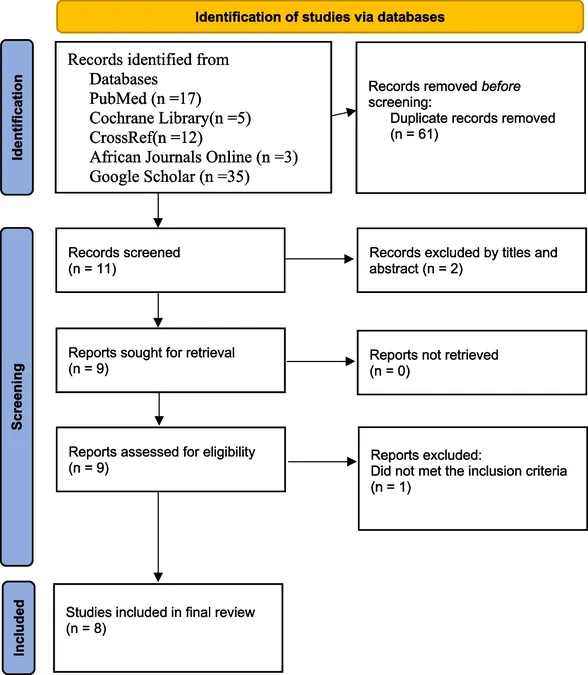
The Alarming Impact of COVID-19 on Mental Health in Ethiopian Students: A Comprehensive Review
2024-09-30
Introduction
The COVID-19 pandemic, which began in late 2019, has turned lives upside down globally, and Ethiopia is no exception. Students, who are crucial to the nation’s future, have faced unprecedented challenges amid school closures and social isolation. The critical mental health repercussions of this crisis are widely acknowledged yet under-explored. This article aims to illuminate the nature and extent of mental health issues affecting students in Ethiopia due to the pandemic.
Research Overview
Our systematic review and meta-analysis adhered strictly to PRISMA guidelines, focusing on studies conducted between December 2019 and June 2022. A rigorous search was performed across major databases—PubMed, Cochrane Library, African Journals Online, and Google Scholar—to gather relevant data. A total of eight studies were included, providing valuable insights into the mental health status of students amid the COVID-19 crisis.
Key Findings
The results are staggering: - **Stress** was reported in 35% of students (95% CI 23%-48%). - **Anxiety** levels soared to 44% (95% CI 30%-57%), with female students experiencing significantly higher levels compared to their male counterparts. - The prevalence of **depression** was also concerning at 44% (95% CI 23%-65%), indicating a mental health crisis amid the pandemic. These findings suggest that Ethiopian students are grappling with significant mental health challenges as a result of the ongoing pandemic, with anxiety, stress, and depression being particularly pronounced.
Influencing Factors
Various determinants of mental health issues among students were identified: - **Demographics**: Female students and those in urban areas were at higher risk for developing anxiety and depression. - **Isolation**: Students reporting feelings of loneliness during lockdowns displayed increased depressive symptoms. - **Socioeconomic Status**: Students from lower-income families experienced heightened anxiety and stress levels. - **Support Systems**: Lack of robust social networks appeared to exacerbate mental health challenges, highlighting the need for community and institutional support.
Comparative Insights
The findings in Ethiopia reflect broader global trends. For instance, a similar study found anxiety rates of around 37% among medical students worldwide, while another in China reported increases in depression due to the pandemic. This elevates concerns about the mental health of students globally and emphasizes the need for targeted interventions.
Call to Action
There is an urgent need for student-specific mental health programs in Ethiopia. Psychological counseling services should be implemented and promoted within educational institutions to address these pressing issues. Furthermore, the Ministry of Health and Ministry of Education must collaborate effectively to develop initiatives that safeguard students’ mental well-being throughout such crises.
Conclusion
The mental health of Ethiopian students during the COVID-19 pandemic has deteriorated significantly, with high rates of anxiety, stress, and depression reported across studies. This review emphasizes the importance of recognizing these mental health challenges and addressing them proactively. The implementation of targeted mental health interventions and support for students is vital in mitigating the pandemic's impact on their health and future.
Final Thoughts
As we navigate the enduring effects of the COVID-19 crisis, it is crucial for stakeholders in education and health sectors to prioritize mental health. Through collective action, we can create a more supportive environment for our students—ensuring they emerge from this challenging period stronger and more resilient.





 Brasil (PT)
Brasil (PT)
 Canada (EN)
Canada (EN)
 Chile (ES)
Chile (ES)
 España (ES)
España (ES)
 France (FR)
France (FR)
 Hong Kong (EN)
Hong Kong (EN)
 Italia (IT)
Italia (IT)
 日本 (JA)
日本 (JA)
 Magyarország (HU)
Magyarország (HU)
 Norge (NO)
Norge (NO)
 Polska (PL)
Polska (PL)
 Schweiz (DE)
Schweiz (DE)
 Singapore (EN)
Singapore (EN)
 Sverige (SV)
Sverige (SV)
 Suomi (FI)
Suomi (FI)
 Türkiye (TR)
Türkiye (TR)